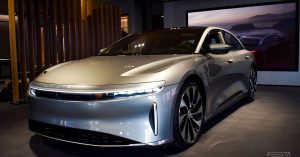Planet Zoo PC Performance Report – GeForce and Radeon Benchmark Analysis

System Requirements
Low vs Ultra Screenshots
GPU Performance Chart
CPU List That Meet System Requirements
GPU List That Meet System Requirements
Comments
Planet Zoo
PC Demand
74
Rate this game
User Rating
7.87
Ok
Not Ok
Optimisation
3.7
Zoo Tycoon fans haven’t had much to sing about lately but with Planet Zoo it feels like the return of one of the tycoon greats. A successor to Planet Coaster, although sadly not linked from a gameplay standpoint, Planet Zoo offers players the chance to oversee there very own zoo paradise.
Gawp at wonder at a spider in a tank. Laugh at the fat seals. Hope it’s feeding time down at the lion enclosure. Planet Zoo provides the toolkit and then it’s down to you to build the zoo of your dreams. It’s impressive stuff, in truth, although it also happens to be a bit of a performance hog as well.
We’ve already extensively covered Planet Zoo’s Most Important Graphics Options and now it’s time to take a look at overall performance with our GPU benchmark tests.
Planet Zoo Graphics Settings
Planet Zoo Graphics Settings
Temporal Antialiasing Materials Textures Resolution Shadows Water Reflections Post Processing Atmospherics Screen Space Reflections Ambient Occlusion Chromatic Aberration Geometry Detail Grass Density Terrain Geometry Weather Effects
Planet Zoo Most Important Graphics Options – Every Setting Benchmarked
Planet Zoo Benchmarks
We’ve tested Planet Zoo with both a AMD Radeon R7 370, which comes in slightly below the minimum spec Radeon R9 270X, as well as further test with a mid to high-end GeForce RTX 2060.
These benchmark tests were run in a medium-sized zoo, zooming in and out, panning the camera around, and generally trying to stress the performance as much as possible.
Planet Zoo benchmarks and frames per second analysis performed on XFX Radeon R7 370 2GB | Intel i7-5820K @ 4.2GHz | 16GB DDR4
Planet Zoo XFX Radeon R7 370 2GB Benchmarks @ 720p & 1080p
(Click to expand)

| Preset | 720p | 1080p |
| Lowest | 52 | 50 |
| Low | 50 | 44 |
| Medium | 34 | 27 |
| High | 29 | 24 |
| Ultra | 22 | 18 |
While the Radeon R7 370 2GB does understandably struggle a little to run Planet Zoo, it’s nevertheless still perfectly capable of playable frame rates if you’re happy dial some settings down. We’d probably aim for a locked 30 as your target minimum, although to be honest it’s still totally playable even with frames in the high teens. Not ideal, but playable.
We did immediately notice a contraction in the benchmark results from Lowest/Low tests at both 720p and 1080p which set alarm bells ringing though. There’s something else at play here, but more on that later.
Planet Zoo benchmarks and frames per second analysis performed on PNY GeForce RTX 2060 6GB XLR8 | Intel i7-5820K@4.2GHz | 16GB DDR4
Planet Zoo GeForce RTX 2060 6GB Benchmarks @ 1080p, 1440p & 4K
(Click to expand)

| Preset | 1080p | 1440p | 4K |
| Lowest | 53 | 54 | 50 |
| Low | 52 | 51 | 48 |
| Medium | 51 | 50 | 40 |
| High | 48 | 44 | 32 |
| Ultra | 47 | 37 | 28 |
With the Nvidia GeForce RTX 2060 6GB PNY XLR8 OC, we begin to see where Planet Zoo’s problems lie. This isn’t a GPU issue, it’s a CPU one. The GeForce RTX 2060 hits 47 FPS on Ultra/1080p, rising to just 53 FPS on Lowest/1080p. It’s being held back, plain and simple, which means we can’t actually hit 60 frames per second in Planet Zoo with this particular configuration.
As we shift up the resolutions, so too does the bottleneck shift from the CPU to the GPU, and the GeForce RTX 2060 really begins to be put to the test.
The bottom line, though, is that Planet Zoo will gladly guzzle down your processor’s resources. Our tests were performed with a 6-core Intel Core i7-5820K 6-Core 3.3GHz overclocked to 4.2GHz. It nudges up close to 100% usage across all 12 threads with alarming regularity. This is cramping the frame rates we’d hope to see from the GeForce RTX 2060. You’ll have to excuse the slightly fuzzy picture, it’s been a mangled along the way for some reason.

Fortunately, being a fairy slow-paced management game, Planet Zoo is still absolutely playable at 1080p/Ultra with an average of 47 FPS. There aren’t any noticeable dips or stutters and the sedate nature of managing a zoo means a sub-60 frame rate doesn’t feel detrimental to the experience.







